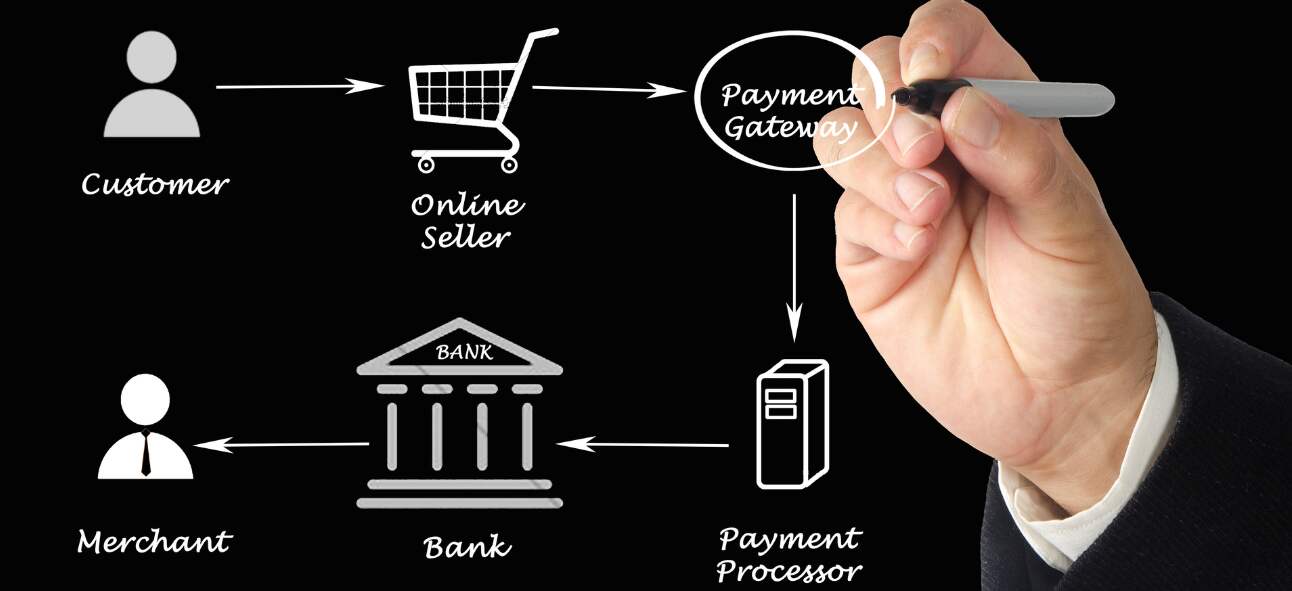Payments are critical to a business. But it might seem like a complex area that you’d rather leave to the experts. But, for any small business that is starting out, having an understanding of the payment terms can go a long way in helping you create the best payment offerings for your customers. And if you’ve been paying attention, you will know that consumers across Europe love ease and convenience while shopping. And payments help you deliver just that.
The pandemic has driven greater digital adoption amongst all age groups. This has led to payments becoming a key part of how businesses cater to their customers, build loyalty, and foster trust. Ignoring this area could hurt your business prospects in the long term. Hence, every online merchant must be aware of the key payment terms in order to smoothly navigate the world of online payments.
In this blog, we talk about the ‘Big 4’ payment terms that you must know about.
1. Payment Gateway
The most important basic amongst the payment terms is the payment gateway. To accept online payments through credit/ debit cards, you need a payment gateway. A gateway is an application that transfers data from the customer (who is the point of entry) via a point-of-sale (POS) terminal, website, mobile device, etc. to the payment processor. At checkout, a customer submits their card details into the gateway, which then encrypts this info and sends it to the payment processor. Once the payment is approved or declined, it transfers the message back to the customer.
A payment gateway is the entry point for a customer’s financial data that is required to authorize an online card payment and ensure the funds move from their account to the merchant’s account. A payment gateway helps you process payments in a secure environment. In Europe, it is mandatory to use a PCI-DSS certified gateway. Hence, you must ensure you sign up with a certified payment service provider or apply for a PCI certificate. Or else, you could sign up with an external partner like Novalnet if you wish to avoid the hassle. For example, our payment gateway can be easily setup within minutes using our instant plugins. We are also PCI-DSS certified, hence you can be confident your payments are safe.
Learn more: How to Add a Payment Gateway to Your Online Store
2. Payment Service Provider
Different customers prefer different payment methods. As a business, you need to be able to process and accept payments from various channels. That is why you need a payment service provider. A payment service provider helps you to accept any form of digital payment. They act as a link between the customer, merchant, payment networks and banks and helps ensure you collect your payments on time. They also play a role in verifying and authorizing the transfer of funds from the customer’s account to your merchant account.
A PSP provides a full range of payment processing services. Some PSPs offer the payment gateway as well. This means the same partner manages your gateway and payment processing needs. You do not need to open a separate merchant account when you work with a PSP, as they will provide you with one. This makes it easier to manage your finances. PSPs work behind the scenes and form a vital part of the global payments ecosystem. They connect all financial parties to deliver a seamless and secure payment experience. It is essential to work with the right PSP to build the best payment experience for your customers.
Read more: 6 Tips to Choose a Payment Service Provider in Europe
3. Merchant Account
A merchant account is a type of business bank account that lets you accept any form of electronic payment, and in different currencies. These include card payments, bank transfers, digital wallets, e-invoices, etc. A merchant account is necessary to secure your business from frauds, refund scams, and chargebacks. At the same time, it helps you scale-up your business and switch to accepting digital payments from traditional methods like cash or cheques.
You can open a merchant account via a payment service provider or an acquiring bank. When you work with a payment service provider, you do not need to open a separate account. Rather, you use an account of your PSP instead. Some of the main benefits of having a merchant account include:
- Advanced protection from fraud and scams.
- Helps you to offer a hassle-free payment experience to customers.
- Links up with your point-of-sale terminals, allowing you to accept payments from different channels into one account.
- Saves money that would otherwise go to pay different transaction costs if you used multiple services.
Know more: Does Your Business Need a Merchant Account?
4. Acquirer and Issuer Bank
All e-commerce transactions involve an acquiring bank and an issuing bank. But what are they exactly? An acquiring bank is the one that maintains the merchant’s business account. It lets you send and accept payments through card networks, and collects funds and credits them to your merchant account. In the event of fraud or chargeback, it is the acquirer who bears the responsibility on behalf of the merchant. Hence, all acquirers strongly follow PCI DSS norms to avert the risk of fraud and data breaches. You can open an account with an acquirer directly, or use the services of a payment service provider (PSP).
The issuing bank is the cardholder’s bank which issues their card. It manages the cardholder’s account and financial data. They allow customers to pay using their cards, and can authorize/ decline transactions. When a payment is authorized, the issuing bank transfers the funds from a cardholder’s account to a merchant’s account. Because an issuer faces higher risks associated with issuing cards, it is responsible to recoup costs in case of any loss or damage.
Know more: Difference Between an Acquirer and an Issuer
How Can Novalnet Help
When you are starting out with your online business, it is very important to get your payment terms right. Multiple players are involved in the payment process and each of them has a unique and important role to play. Working with a good PSP gives you the benefit of not only knowing all these aspects, but you also get a reliable financial advisor who can support all your payment needs.
We are a global PSP that is trusted by Europe’s leading brands to handle their payments. Our state-of-the-art technologies and methods help you accept payments globally. From our instant payment plug-ins to our AI-based risk management tools, we have the resources to get your payments up and running in no time, and with zero hassle.
Reach out to us today to know more.
Jose Augustine is the Chief Business Development Officer at Novalnet with extensive experience in European payment industry and a knowledge powerhouse.












